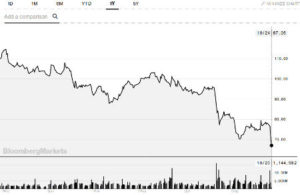I’ve just been on holiday to India. Trying to use TripAdvisor for hotels and other information was a completely new experience this time. Normally I prefer TripAdvisor over booking.com, because while both generally let you say anything you want, booking.com mixes so much marketing with the reviews that it’s too hard to identify places with significant numbers of negative reviews. Even if I end up booking hotels with booking.com because it’s cheaper, I have been using TripAdvisor to actually choose the places.
The Fake Reviews and Profiles
Of course both TripAdvisor and booking.com are loaded with fake reviews, and it’s always been an issue identifying them. Booking.com requires a booking before you leave a review, but if you are the owner of a particular hotel, it’s no problem to generate fake bookings, and then leave fake reviews. Booking.com doesn’t seem to care about this kind of fake review, because of course they get a commission for every fake booking. TripAdvisor has always been a bit of a sandbox, but since every user has a profile with a history of reviews, it’s a lot of work to create a credible profile to go along with every fake review. Reviews where the user has only ever placed less than 5 reviews can easily be identified as probably fake, and any property that has a pattern of suspected fake reviews can also be identified as suspect.
Cheap Computer and English Skills
Visiting India was a whole new ballgame. This is a country where many people have above average computer and English language skills, and labor is very cheap. Unskilled labor costs about US$4 per day, and for a little more you can pay for full time fake review writing. Also, if you’re a hotel and your staff isn’t very busy, you can ask them to create fake reviews in their spare time.
As I was planning my trip to India I encountered elaborately made profiles, with an extensive history of reviews. There were positive reviews left by owners on their own properties, and negative reviews on competing properties. I think everyone understands a new hotel may feel they need to write a few positive reviews about themselves to get started, but what I saw mostly went far beyond this.
In general I had to look for patterns like writing style that was the same, or possibly existing profiles with exactly the same number of previous reviews. Sometimes cultural or language mistakes in reviews from countries I was familiar with. In general, it just wasn’t possible to tell, and the sheer volume of fake reviews was often overwhelming.
Reviews About Fake Reviews
One of the only ways you can identify a property with fake reviews, is to actually go there and see for yourself it doesn’t match the other reviews. It follows that you can then express this in your own review for that property, right? Not so.
By way of fake reviews, I found myself staying at the Wood Castle Grand in Delhi, which at the time of making this post had 245 reviews on TripAdvisor and was ranked #9 out of 892 hotels in Delhi. This hotel was not great, but okay. Even though I am of the opinion that probably all 245 reviews are fake, I understand that the hotel is getting started, can’t do that without any reviews, and so has to write the first few reviews themselves. In fact, as far as I was able to see, the hotel only had 2 functioning rooms, and simply didn’t have the traffic justifying 245 reviews anywhere. I was there for 4 nights, and only saw one other visitor who was leaving just as I arrived. I was there during what should have been the busy season for them.
In my review of this hotel, I didn’t want to be overly hostile, but I mentioned you should consider some of the reviews don’t seem right to me and may be faked. TripAdvisor was very clear about this. They rejected my review saying:
We don’t allow accusations that reviews are biased, suspicious or fake.
If you feel a review is suspicious, please use the flag / “Problem with Review” link, located at the bottom of each review, to alert our investigation team.
Flagged Reviews
Okay, if we’re supposed to flag suspicious reviews, let’s have a look at one of the things I’ve flagged in the past: La Pizzateca Madrid
This place has no reason for a positive review. There is just nothing here, and no reason for anyone to visit. When we were there, they had only a few types of pizza slices, none of which were vegetarian. We ordered a pizza, and it was disgusting. Plastic chairs and tables. They only have a few customers.
This is not rocket science, all anyone has to do is walk in there and have a look. There are few more obvious examples of abuse on TripAdvisor.
At the time of writing this post they are #97 out of 10285 restaurants in Madrid, based solely on fake reviews. After I left a 1-star review, there was a flurry of fake 5-star reviews, mostly from people who had only ever written one review in their lives, to compensate and bring them back up to what was at the time the 50th or so best restaurant in Madrid.
If this place is still there years after I flagged it, how seriously are we supposed to take TripAdvisor’s request to flag suspicious reviews?
End of an Era
While I can understand TripAdvisor’s position, not wanting to risk removing someone’s real review and claim it’s fake. The one thing they used to have going for them was they never censored legitimate reviews. That doesn’t seem to be the case anymore.
I’m really going to be in a quandary when it comes to my next trip. Anyone have any suggestions on what should come next, after TripAdvisor?


